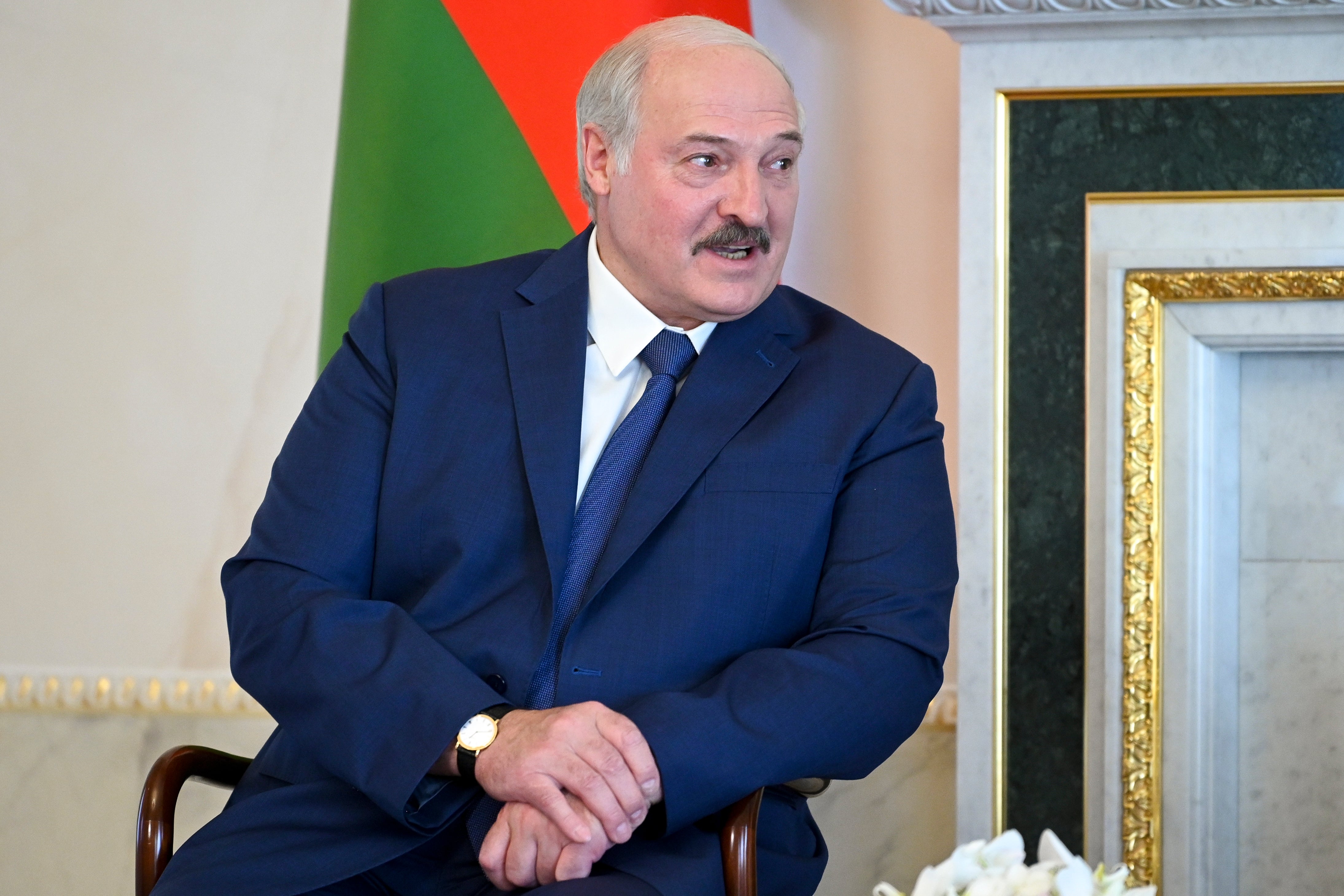Belarus expands crackdown on independent media
Belarusian authorities have expanded their crackdown on independent media, raiding media offices and journalists’ homes across the ex-Soviet nation

Your support helps us to tell the story
From reproductive rights to climate change to Big Tech, The Independent is on the ground when the story is developing. Whether it's investigating the financials of Elon Musk's pro-Trump PAC or producing our latest documentary, 'The A Word', which shines a light on the American women fighting for reproductive rights, we know how important it is to parse out the facts from the messaging.
At such a critical moment in US history, we need reporters on the ground. Your donation allows us to keep sending journalists to speak to both sides of the story.
The Independent is trusted by Americans across the entire political spectrum. And unlike many other quality news outlets, we choose not to lock Americans out of our reporting and analysis with paywalls. We believe quality journalism should be available to everyone, paid for by those who can afford it.
Your support makes all the difference.Belarusian authorities on Friday widened their crackdown on independent media, raiding media offices and journalists' homes across the ex-Soviet nation.
The Belarusian Association of Journalists said the authorities searched apartments and offices of at least 21 journalists in the capital of Minsk and cities of Brest, Gomel, Grodno and Pinsk.
“The authorities are using an entire arsenal of repressions against journalists — intimidation, beatings, searches and arrests,” said the association's head, Andrei Bastunets.
Among those targeted Friday were journalists who cooperated with the Belsat TV channel funded by Poland and the U.S.-funded RFE/RL broadcaster.
RFE/RL journalist Aleh Hruzdzilovich was detained after the search, his wife Maryana said in a telephone interview from Minsk.
“Nine people broke into our apartment, seized all the equipment and took Aleh away in handcuffs,” she told The Associated Press.
The authorities also broke down the door of the RFE/RL's Minsk office to search it.
The new raids continue a sweeping clampdown on independent media and non-government organizations in the country.
Earlier this week, law enforcement officers raided the homes of 10 workers of the Viasna human rights center, as well as its offices in Minsk and other cities. They also searched a number of other Belarusian NGOs and journalists.
The action came after the country’s authoritarian President Alexander Lukashenko promised to “deal with” non-governmental organizations that he accuses of fomenting unrest.
Belarus was rocked by months of protests after Lukashenko’s August 2020 election to a sixth term in a vote that the opposition and the West saw as rigged.
Belarusian authorities responded to opposition demonstrations with a massive crackdown, including police beating thousands of demonstrators and arresting more than 35,000 people. Leading opposition figures have been jailed or forced to leave the country, while independent media outlets have had their offices searched and their journalists arrested.
Overall, 32 Belarusian journalists are currently in custody, either serving their sentences or awaiting trial, according to the Belarusian Association of Journalists.
Sviatlana Tsikhanouskaya Lukashenko’s main challenger in the August 2020 election, who was forced to leave Belarus under official pressure immediately after the vote, tweeted Friday that “the regime destroys every media that dares to tell the truth about the situation in Belarus.”
The European Union's foreign policy chief Josep Borrell denounced the crackdown in a statement issued Thursday.
“This new wave of repression is yet another proof that the Lukashenko regime is waging a systematic and well-orchestrated campaign with the ultimate aim to silence all remaining dissident voices and suppress civic space in Belarus,” Borrell said. “The severe violations of human rights and fundamental freedoms come at a price. The EU is ready to consider further restrictive measures in line with its gradual approach.”